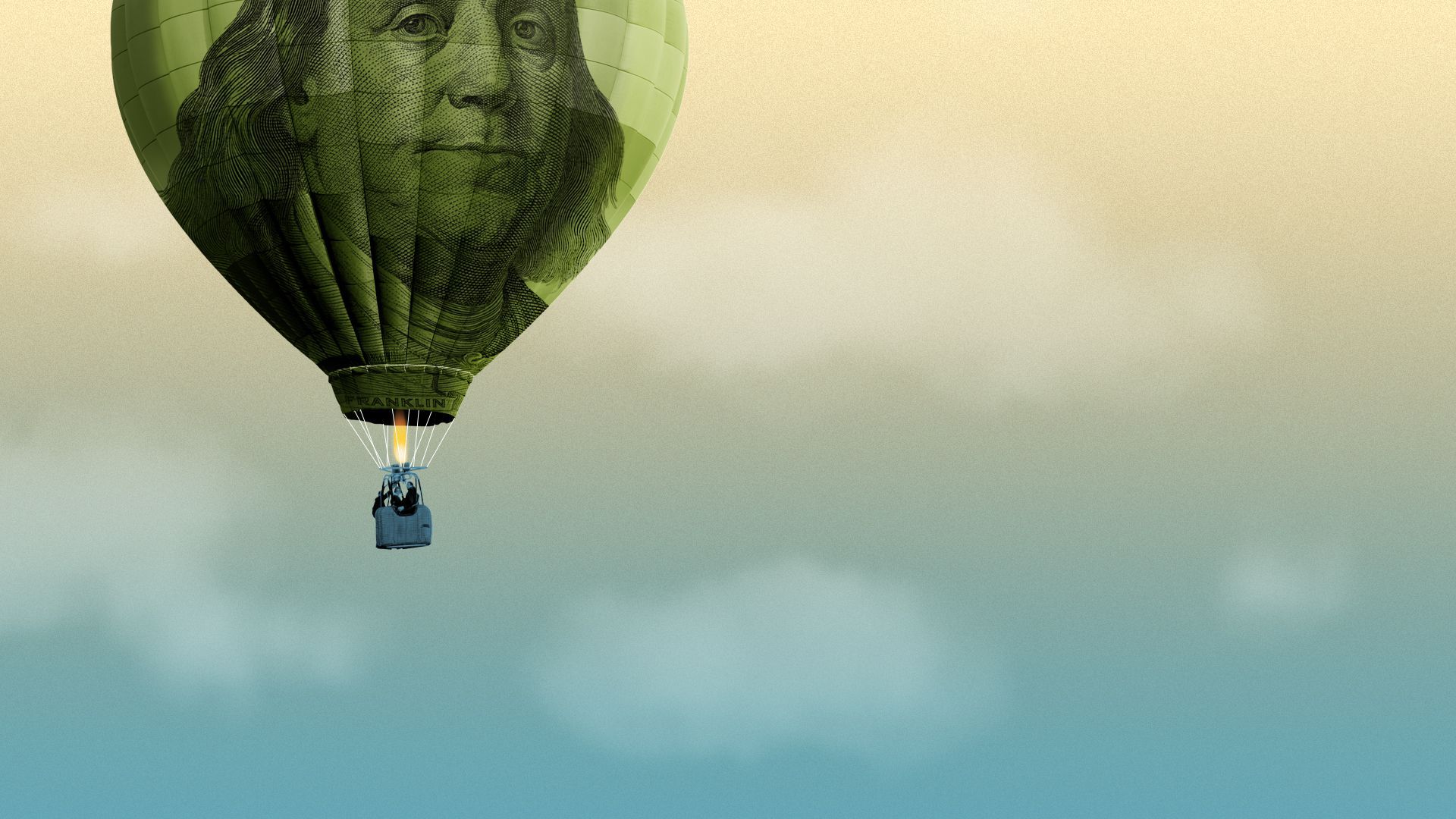Inflation is a little too much of a good thing
Add Axios as your preferred source to
see more of our stories on Google.

Illustration: Sarah Grillo/Axios
The booming economy, with abundant help from both Congress and the Federal Reserve, has one downside: It's causing some prices to rise at a somewhat alarming level. Inflation is now well over 5%, and no one's entirely sure when it might start coming down.
Why it matters: If Democrats in Congress get their way, we're about to see some $4.5 trillion in new infrastructure spending, which can't help but add to inflationary pressures. Inflation alone, however — especially if it's temporary — is not so harmful as to be a reason not to pass such a bill.
How it works: There are different types of inflation.
- Asset-price inflation (a/k/a the stock market going up) is generally considered to be a good thing. Rising house prices are more of a mixed bag.
- If a fast-food meal has been artificially underpriced for years due to workers being paid much less than a living wage, then food-price inflation looks a lot like redistribution of wealth to people who need it. The same applies in many other service industries.
- When pandemic-related supply-chain issues cause shortages that in turn cause price hikes, that's more unambiguously negative, although also temporary and even fixable. The cost of higher prices is clear; any benefit is hard to see.
- When the economy as a whole grows so fast as to exceed its fundamental capacity, that causes what economists call "overheating" — a broad and inexorable rise in the price of just about everything. There's no evidence that's happening now, however: Only 34% of goods and services have risen in price by more than 2% over the past year, and that percentage is falling rather than rising.
The big picture: As Andrew Ross Sorkin writes in the NYT, "Inflation has long been seen as the economic villain. That view is changing." There is evidence that inflation is associated with lower inequality; it also helps to reduce the real value of fixed debts such as student loans.
- The real problem arises when inflation enters a self-fulfilling vicious cycle, where inflation expectations feed directly into higher prices today. That isn't happening yet — and in fact hasn't happened in any rich country for decades.
What's next: Infrastructure spending will be spread over many years, and will largely be paid for by tax hikes on corporations and the rich. The spending will happen in the real economy, where it will exert upward pressure on prices, while the pay-fors will happen largely in the financial economy, with relatively little effect on inflation.
The bottom line: Inflation, while high, is not yet worrisome. Long-overdue infrastructure spending is a much higher priority.
